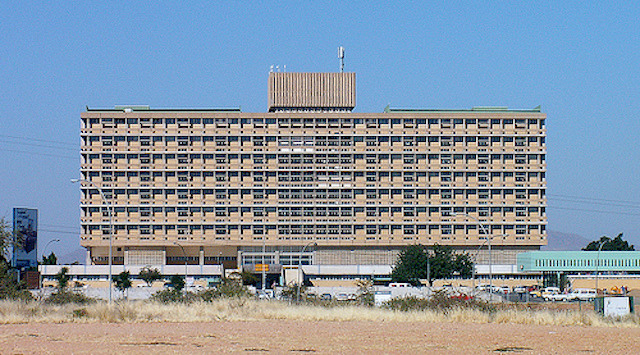LEONARD KANIMEMANY COUNTRIES are now focused on widespread rollouts of the Covid-19 vaccination, which are predicted to help put their economies in a better position.
Namibia’s vaccination rollout has been slow, probably because of logistical impediments and the hesitancy of people to get the shots because of misinformation circulating on social media platforms.
A turnaround strategy for the country’s economic recovery could be fast-tracked by, among others, three institutions: The Anti-Corruption Commission (ACC), Namibia Revenue Agency (Namra) and Namibia Investment Promotion and Development Board (NIPDB).
The ACC has a role to play as corruption has derailed economic growth and stability in several African countries. It not only affects economic efficiency and growth but also the equal distribution of resources, thereby increasing income disparities leading to deflation of social welfare effectiveness and development programmes.
Namibia must become more integrated in the global economy and attract greater levels of foreign and domestic investment if we want to achieve the necessary growth to recover from the economic downturn and the impact of the coronavirus.
Corruption is corrosive. It affects investment, the revenue system and effective public expenditure. The Fishrot scandal discouraged investment because it was seen as an additional cost of doing business, thereby reducing profitability for potential investors.
The ACC needs rigid frameworks and efficient approaches to dishonesty in the utilisation of public resources and strategies. To limit corruption, these need to be realistic, achievable and should be tailored to the needs of the public/government.
Policies and laws also have to be consistently applied across the board. Increasing governmental accountability and transparency will enhance public participation.
Setting up an independent revenue agency to deal with tax collection is aimed at removing bottlenecks in the domestic revenue system. The Ministry of Finance now functions as a policymaker and Namra as a policy administrator (revenue collector). Collecting taxes more easily through a strategic institution is critical to the country’s long-term development goals. Tax evasion, poor tax policy, and ineffective enforcement have constrained the government’s ability to mobilise the domestic revenue required to provide basic services to citizens and promote economic growth/social development. The agency should cultivate accountability among taxpayers by raising awareness of taxation responsibilities, payment methods and the risks of non-compliance.
Namra can play a significant role in inflating economic activities through public financial management. Some of the powers and functions of the agency are to assess and collect taxes and duties, and to enforce revenue collection laws. Indeed, if these functions are properly executed, a lot of the tailbacks would be minimised although not removed.
All eyes are on the NIPDB as the port of investment. The organisation is mandated with crucial functions to accelerate and boost investment opportunities. There have been blockages to creating a conducive environment for doing business and attracting domestic and foreign investments. The NIPDB has come at the right time – when Namibia needs an economic rescue plan, and to promote/facilitate investments that contribute to economic development and job creation.
The NIPDB’s focus should be to oversee Small Medium Enterprise (SME) operations with the ambition of creating and stimulating new ventures that will meaningfully contribute to Namibia’s economic development.
Indeed, SMEs can rapidly help grow the country’s economy for two reasons. First, integrating proven practices and technologies are faster and safer than testing new ones, and SMEs have a large adoption gap to close. In the same way that emerging markets can grow faster than high-income markets by adopting tested technologies, SMEs can grow faster than large companies by adopting proven technologies and practices of larger enterprises.
Second, start-up capital. This is critical. There are old legal systems and outdated business strategies in Namibia that need prompt review. The NIPDB with other stakeholders should collectively address these challenges.
NIPDB should focus on promoting a healthy environment that enables SMEs to perform well: Boosting the business confidence of SMEs through mentorship programmes, enabling growth, and increasing the competitiveness of SMEs in the local market. This will require segmented execution. It is therefore important that the NIPDB designs its services after identifying the subsegments prevalent in the country and the differences in needs.
Stay informed with The Namibian – your source for credible journalism. Get in-depth reporting and opinions for
only N$85 a month. Invest in journalism, invest in democracy –
Subscribe Now!










